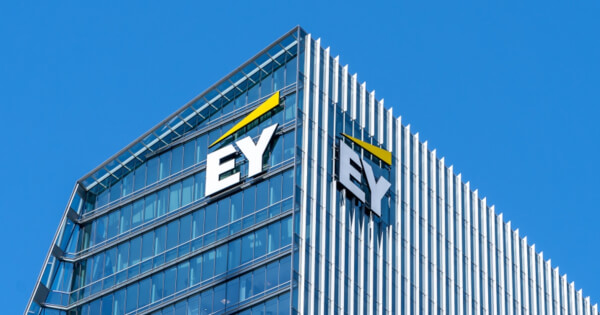EY Launches Crypto Tax Reporting App to Assist Businesses with US Tax Filings
Sarah Tran Jun 18, 2020 17:00
Ernst & Young (EY) is launching a crypto Software as a Service (SaaS) to offer step-by-step guidance that assists with US cryptocurrency tax filings.

Ernst & Young (EY) is launching a crypto Software as a Service (SaaS) to offer step-by-step guidance that assists with US cryptocurrency tax filings. The cryptocurrency application is a web-based enterprise-grade tax engine and is fully automated to support the crypto tax process.

The SaaS, EY CryptoPrep supports a number of major cryptocurrencies and exchanges and works by aggregating and reconciling transaction data. This then allows the engine to appropriate tax rules to deliver a detailed account of the capital gains or losses in crypto.
EY CryptoPrep provides a completed Form 8949 from the Internal Revenue Service (IRS) for all applicable tax years. This technology and service are available to EY’s clients based on EY TaxChat and EY Blockchain Analyzer as a managed service.
Marna Ricker, EY Americas Vice Chair of Tax Services said that their clients are increasingly holding and trading cryptocurrencies, which highlights the need for this new innovative solution to solve the complex issues surrounding crypto tax filing. She added:
“The EY Foundry, our internal corporate venturing unit, created EY Crypto-Prep to modernize the crypto tax accounting process.”
The IRS keeps an eye on crypto tax evasion
The IRS has requested help from independent consultants to crack down on non-compliance in cryptocurrency tax.
The IRS sent out a Statement of Work (SOW) on May 12, 2020, soliciting private contractors to aid in auditing tax returns related to virtual assets.
In October 2019, the IRS announced the addition of a question to the US tax return form obligating citizens to disclose their cryptocurrency holdings as well as gains and losses.
However, the IRS has not clarified the 2019 crypto tax guidelines.
EY and tax
Dennis Post, EY Global Blockchain Tax Leader told Blockchain.News, “We basically see two developments where tax will be significantly impacted by blockchain (besides crypto). Firstly, we see that blockchain will help to create more robust tax systems, for example in the financial services sector (withholding tax) or in global trade (VAT, customs). At EY we are fully embracing the opportunity blockchain brings in reducing manual labor and paper-based processes, and we are in the process of developing blockchain platforms that solve tax problems. Secondly, we are building solutions that can connect to commercial blockchains to calculate the tax consequences of these transactions.”
Image source: Shutterstock
.jpg)